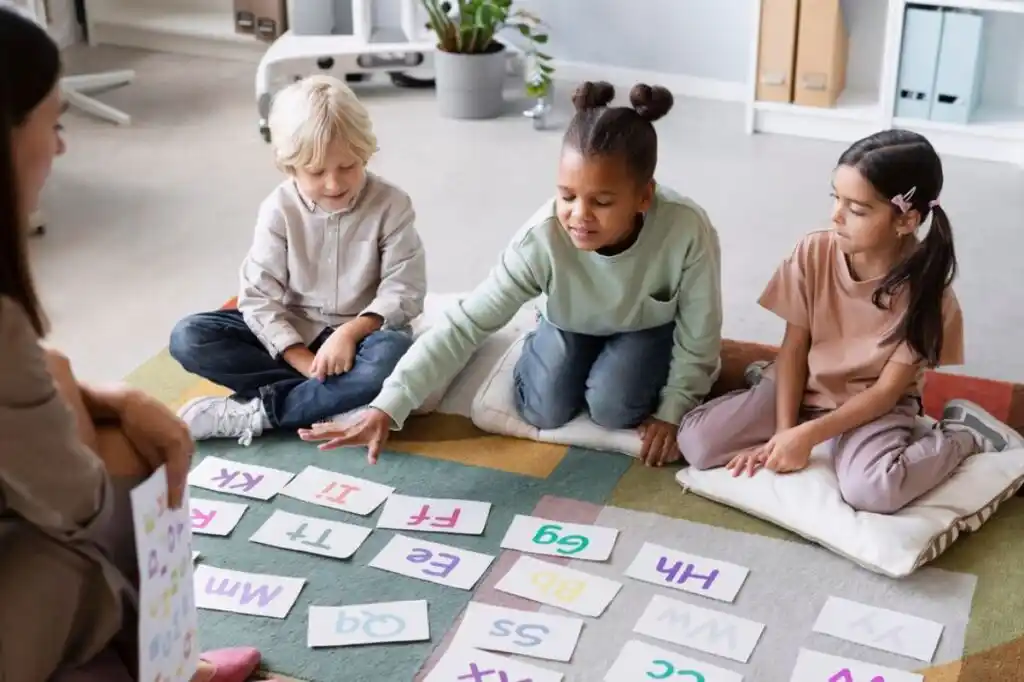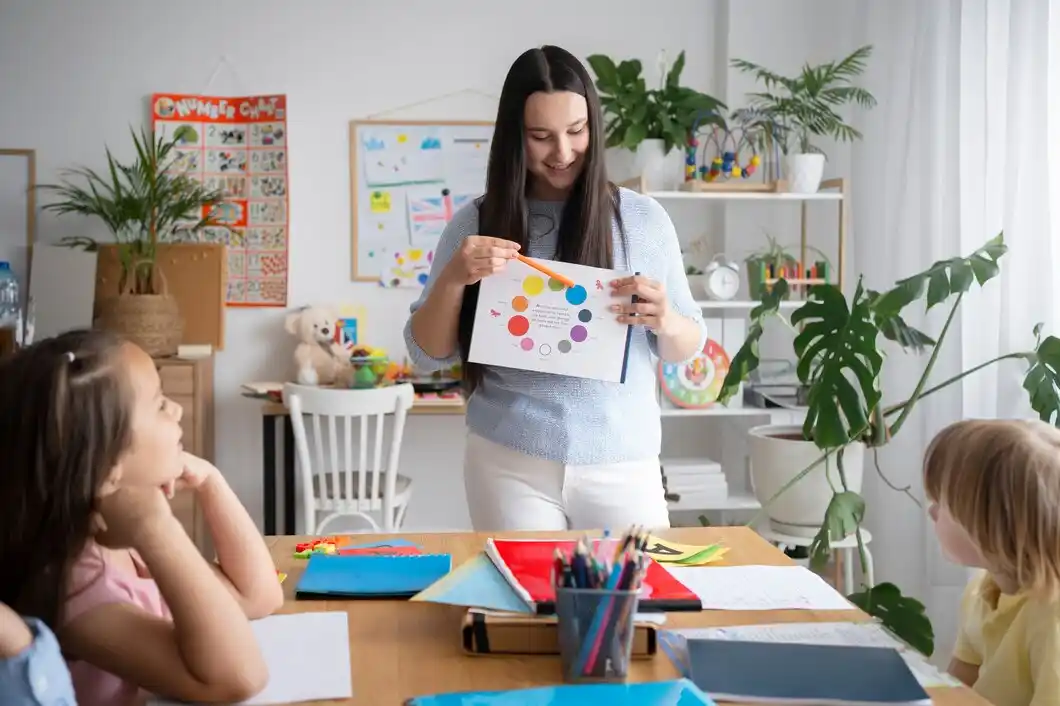The Education Blog

The Benefits of Early Childhood Education & How to Start
Early childhood is a key time to learn and develop. Early Childhood Education (ECE) is a must. It activates a child’s thinking, social skills and emotions. ECE lays the groundwork for learning throughout life. Good early education helps kids build key skills. These include problem-solving, communication, and social interaction.
Parents often wonder whether preschool is necessary and how to begin starting school preparation. This guide explores the preschool benefits, why ECE matters, and practical steps to help your child transition into a learning environment with confidence and enthusiasm.
1. Understanding Early Childhood Education
Early Childhood Education is organised learning for children from birth to about five years old. These may be daycare centres, preschool programs, nurseries or learning activities that you do at home. The hope is to provide children with a place. It is a space for their minds and feelings to grow.
Why Is Early Learning Important?
Research has shown that the first five years of life are a period of rapid brain development. Children exposed to quality early childhood education experience:
- Improved language and communication skills
- Better emotional regulation and social skills
- Enhanced cognitive development and problem-solving abilities
- A stronger foundation for future academic success
Kids who go to preschool tend to graduate high school more often. They also often seek higher education and have better job opportunities. Investing in early childhood education helps the child and builds a skilled society.
2. The Key Benefits of Preschool Education

Preschool education builds a strong foundation for a child’s academic and social development. It enhances early literacy, cognitive skills, and emotional growth while fostering independence and a love for learning.
1. Cognitive and Language Development
One of the biggest benefits of preschool is enhanced cognitive and language development. In a structured setting, children:
- Learn new vocabulary through stories, songs, and conversations.
- Develop critical thinking skills by solving puzzles and engaging in interactive activities.
- Improve memory and attention span through guided learning exercises.
- Early exposure to literacy and numeracy prepares them for future academic challenges.
2. Social and Emotional Growth
Children who attend preschool are more likely to develop strong social skills. They learn:
- How to share, take turns, and collaborate with others.
- Conflict resolution skills through guided problem-solving.
- Emotional regulation by expressing feelings and recognising emotions in others.
- How to build friendships and navigate social interactions with peers and teachers.
3. Preparation for Primary School
Starting school preparation is a major advantage of ECE. Preschool provides children with a structured environment that mirrors formal schooling, helping them:
- Adapt to routines and follow instructions.
- Develop independence by completing simple tasks on their own.
- Gain confidence in interacting with teachers and classmates.
- Become comfortable with classroom settings, making the transition to primary school smoother.
4. Encourages Creativity and Curiosity
Preschool nurtures a child’s natural curiosity by encouraging exploration and creativity. Activities like arts and crafts, music, and imaginative play allow children to:
- Express themselves freely.
- Develop a love for learning.
- Experiment with different ideas in a safe and supportive space.
- Ask questions and explore solutions, fostering a lifelong love of discovery.
5. Stronger Foundation for Lifelong Learning
Kids with early childhood education do better in school later on. They are more likely to:
- Excel in literacy and numeracy.
- Show higher motivation to learn.
- Develop strong problem-solving abilities.
- Adapt better to new learning environments and challenges.
3. How to Choose the Right Preschool

Choosing the right preschool involves evaluating factors like curriculum, teacher qualifications, class size, and learning environment. A good preschool should align with your child’s needs, encourage social and cognitive development, and provide a safe, nurturing atmosphere.
1. Identify Your Child’s Needs
Each child is unique. So, choosing a preschool that fits their learning style and personality is key. Consider:
- Do they thrive in structured or free-play environments?
- Do they require extra support in social or language development?
- What teaching philosophies align with your parenting approach (Montessori, play-based, academic)?
2. Research Different Preschool Options
Not all preschools are the same. When researching options, look for:
- Qualified teachers with experience in early childhood education.
- A well-rounded curriculum that includes academic, creative, and social activities.
- A safe and engaging environment that promotes exploration.
- Positive parent reviews and recommendations.
3. Visit the Preschool Before Enrolling
A school visit allows you to observe:
- How teachers interact with children.
- The cleanliness and safety of the environment.
- Whether the school culture aligns with your expectations.
- How engaged and happy the children seem during activities.
4. Consider Class Size and Teacher-Student Ratio
Smaller class sizes allow for more personalised attention. Look for:
- A low teacher-student ratio ensures quality interaction.
- Teachers who actively engage with children.
- An environment where your child feels comfortable and valued.
4. Preparing Your Child for the Transition to School

Helping your child transition to school smoothly involves building routines, fostering independence, and encouraging social skills. Introducing them to the school environment and maintaining a positive attitude can ease anxiety and create excitement for this new journey.
1. Establish a Learning Routine at Home
Creating a structured daily routine before school starts helps ease the transition. Simple steps include:
- Setting regular meal and sleep times.
- Introducing short learning activities like reading books together.
- Encouraging independent play to build focus and confidence.
- Practising basic academic skills like counting and letter recognition.
2. Develop Social Skills Through Play
Children who have strong social skills adapt more easily to preschool. Help your child develop these skills by:
- Organising playdates with other children.
- Encouraging sharing and cooperative games at home.
- Teaching them simple phrases to express needs, like “Can I play too?”
- Role-playing common preschool situations to help them understand expectations.
3. Talk Positively About School
Your attitude towards preschool influences your child’s perception of it. Encourage excitement by:
- Reading books about starting school.
- Visiting the school together before their first day.
- Talking about the fun activities they will do in class.
- Reassuring them that new experiences are exciting and safe.
Invest in Your Child’s Future Today
Early childhood education is a great investment in your child’s future. It provides big benefits for their mind, social skills, and emotions. The preschool benefits go beyond academics, helping children build confidence, independence, and a love for learning.
Parents can set their children up for success by carefully choosing the right preschool and focusing on starting school preparation. Nurturing early education, whether in preschool or at home, helps kids build vital skills for life.









